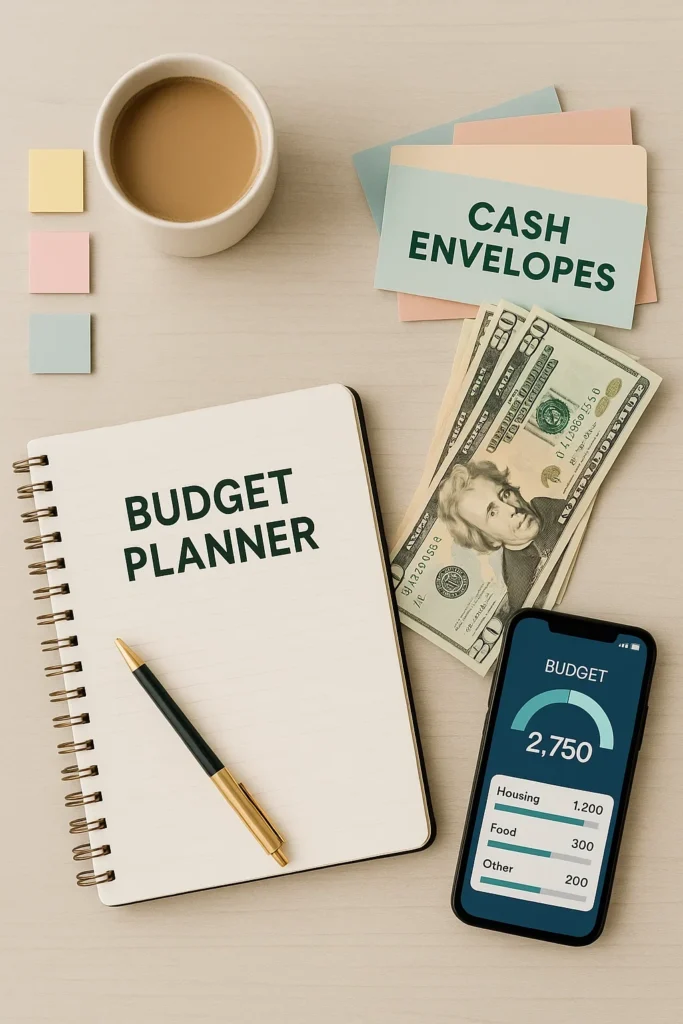Master these practical budgeting strategies to transform your financial situation and secure your future. Budget Mastery

Breaking Free from Financial Stress
Living paycheck to paycheck is bringing on relentless anxiety. The news? With the right budgeting approach, anyone can break the cycle. This book presents a no-nonsense budgeting plan that works with actual people and actual financial issues.
Whether you’re in debt, saving for a big-ticket purchase, or just want to have more control over your finances, these habits can lead you to true financial security.
The Real Benefits of Thoughtful Budgeting
Taking Charge of Your Finances
Take control of your money instead of wondering where it’s gone. Budgeting lets you have the power to direct your money with intention.
Less Stress
Swap worry about surprise bills or payment shock with instruments that insulate you from financial shocks.
Setting Goals
Transform distant dreams into tangible goals within reach through disciplined planning and persistent effort.
The 6-Step Money Mastery Plan
Step 1: Financial Reality Check
Successful budgeting depends on complete understanding of where you are today:
Income Assessment
Record every money source including:
Primary job income
Secondary income
Investment income
Rental income
Support payments
Expense Tracking
Organize your spending
Critical fixed expenditures (mortgage/rent, utilities, loan payments)
Variable necessities (food, transport)
Discretionary (dining out, entertainment)
A substantial majority of people discover concealed expenditures they weren’t even aware of from this activity.
Step 2: Budget Framework Implementation
Take a stab at utilizing the flexible proportion technique:
50% – Necessities
House, food, utilities, transport, insurance
30% – Lifestyle
Dining out, entertainment, pastimes, personal grooming
20% – Financial Future
Debt repayment, savings account, investments, retirement
This system is not carved in stone—adjust percentages based on your personal situation, regional cost of living, and investment goals.
Step 3: Automation Strategy
Remove the willpower factor by implementing automatic transfers on pay day:
Transfer a percentage to an emergency fund
Send money to investment accounts
Send funds to various spending categories into separate accounts
Financial planners everywhere recommend developing a 3-6 month emergency fund for essentials before aggressively pursuing other financial goals.
Step 4: Expense Optimization
Intentional saving on expenses contributes to your bottom-line mobility:
Quarterly review subscription services
Negotiate recurring fees (internet, phone, insurance)
Implement meal planning to reduce food expenses
Research transportation options
Implement the 24-hour rule for discretionary purchases
Small adjustments amount to an enormous sum in the long run.
Step 5: Regular Review Process
Plan for regular review of your budgeting process:
Weekly 15-minute speed checks
Monthly detailed review (1 hour)
Quarterly review and adjustment of goals (2 hours)
This ongoing attention to these habits ensures that you catch problems early and adapt to changing conditions before you make money stress.
Step 6: Habit Formation
Financial success is founded on building these foundation habits:
Monitoring expenditures regularly
Distinguishing needs from wants
Semi-automatically saving ahead of discretionary spending
Spending first and asking “questions” of a purchase
Notifying financial milestones appropriately
Your own consumption behaviors ultimately guide your financial outcomes more than income level alone.
Effective Budgeting Resources
| Resource | Format | Best Application |
|---|---|---|
| YNAB (You Need A Budget) | Digital App | Proactive spending planning |
| Mint | Digital App | Automatic expense categorization |
| Spreadsheet Templates | Digital Document | Customized tracking and analysis |
| Cash Envelope System | Physical Method | Tangible spending awareness |
Creating Lasting Financial Stability
Effective budgeting isn’t about restricting your life—it’s about creating freedom through intentional choices. When implemented consistently, this budgeting framework empowers you to weather financial emergencies, pursue meaningful goals, and ultimately build lasting wealth.
Most importantly, remember that financial management is a skill that improves with practice. Each month becomes easier as your financial awareness grows and habits strengthen.
Begin implementing these strategies today. Your financial journey improves with each step forward.
Explore more financial wisdom:Financial Freedom & Passive Income Archives – Money Minds Finance Personal Finance & Budgeting Archives – Money Minds Finance
